
The Post Secondary Transition Conversation
We talk about the ins and outs (and everything in between) of the secondary transition process for families of students with disabilities! Hosts Meghan (Smallwood) and Patrick (Cadigan) serve as supportive guides, leading families step-by-step up each rung of the transition ladder.
Also check out our parent website: https://www.postsecondarytransition.com
The Post Secondary Transition Conversation
052. Interview: Audri Levering (Parents Place of MD) & Supported Decision Making Pt. 1
For Part 1 of a two-part discussion, hosts Meghan (Smallwood) and Patrick (Cadigan) take the opportunity to talk with Audri Levering, Transition Program Coordinator at Parents Place of Maryland (PPM). The conversation covers the resources available for families of students with disabilities through PPM and the importance of considering all options available to families when considering the future of children as they grow into adults. Ms. Levering talks about her grant-funded work to make resources available to families to better understand Supported Decision Making and how it differs from Guardianship. Join the conversation!
Episode Keywords:
families, eastern shore, Maryland, guardianship, transition, disability, trainings, supported decision making, resources, advocate
Links:
Parents Place of MD (site)
Parents Place of MD Resources (page)
Alternatives to Guardianship (page)
Supported Decision Making (site)
To download a copy of a transcript for this episode or any of our previous conversations, click here.
Also visit our Podcast webpage to find links to all of our other discussions; go to www.p2transition.com.
Additional information about post-secondary transition can be found at our website.
The Post-Secondary Transition Podcast Facebook page.
Visit our YouTube Channel to find additional video resources.
Intro/Outro music by AudioCoffee from Pixabay.
Transition music by Joseph McDade from Transistor.
Transitioning from high school to post secondary life is an exciting and challenging time for any family. But for families of students with disabilities, this journey can feel like navigating uncharted waters, from exploring different post secondary options to understanding available resources and support services. There's a lot to consider. It's a lot of information. And trying to do it all at once can feel very consuming. So we're here to get that conversation going. Welcome, this is the Post Secondary Transition podcast where we have conversations around the ins and outs and everything in between the transition process for families of students with disabilities. I'm one of the hosts, my name is Patrick Cadigan. I do have a co-host and who would that be?
Meghan Smallwood:My name is Meghan Smallwood, and I'm a public school transition coordinator. So today, we are lucky enough to have Audri Levering with us, who is the Transition Program Coordinator at parents place of Maryland. And thank you for joining us, Audri.
Audri Levering:Thank you for asking me to come today Meghan and Patrick.
Meghan Smallwood:Yeah, and I know we talked a little bit beforehand. So I'm very excited for the conversation. For everyone who's joining us, do you mind just telling a little bit about yourself and your background and how you came to Parents Place of Maryland?
Audri Levering:Sure. My role at Parents Place in Maryland is I am the Transition Program Coordinator. And it has been quite the journey. Getting there. I'm a native Texan don't hold it against me. My personal professional background is I was a speech and language pathologist, I worked primarily in hospitals. And when my first child was born, she had a number of medical complications at birth. doctors weren't really quite sure if she was in the NICU for about six weeks, I had a healthy pregnancy. But by the end of her time in the NICU, you know, she'd had every every possible tests done, you know, the doctors kind of decided that this was a child that had a genetic syndrome, but they didn't have a name for it. I always say that. My journey to my role here kind of started in my job as a speech language pathologist, but but once I had a child with a disability, that is what really started me on my journey of understanding the parents role, right, because I was a provider for so long. And all of a sudden, without kind of any, you know, some parents know that they're going to have a child born with a genetic syndrome, I did not. And so as quickly into this role, you know, role of being a parent of a child with a disability. And even having that background, I found that extremely challenging. I became a stay at home mom, my husband travels, quickly had another child. And we moved in Maryland, when my daughter was approximately going into the fifth grade. Oh, I need to backup a little bit. I'm young, so she didn't have a diagnosis. You know, my journey was one of her preschool years were full of doctor's appointments and therapy appointments. Parents, I had this dream of playdates and it quickly became about all of that right? Having that's my other passion, I would like to talk about this a little bit is that my passion is absolutely transition age youth. But because of my personal journey, I have a special place in my heart for those families that have rare conditions, right? Because it's a lot of unknowns, a lot of not a lot of answers when you go to the specialists. Not a lot of support groups. So you feel very isolated while still trying to support and do the best for your child and then find answers. So it's a neat place to be anyway, that's just a little little segue. My other passion. So when we came to Maryland, I moved to the Eastern Shore. But I moved from Austin, Texas. Wow, that's a Switch isn't it? But but we live on Ken Island, close to Annapolis, but also close to access the Eastern Shore and then I was continues to be a stay at home mom, but I have always in the beginning, been passionate about going to training, continuing education, whatever I could find is when I moved to Maryland, I found the parents place in Maryland, did several of their trainings and you know, always kind of had a connection there. And when my daughter was in ninth grade, a job came open. I applied and I got it. So my first job was the parents place in Maryland. I've been with parents place three years I was a I was the parent educator for the Eastern Shore. So I supported families and did trainings for families on all nine counties at the eastern shore. And then, after about a year and a half, I became the Transition Program Coordinator and I helped to develop information facts Sheet, trainings, anything related to transition age youth. And then I also keep supporting families as a parent educator on the Eastern Shore.
Meghan Smallwood:That's awesome.
Patrick Cadigan:Tell me about parents place in Maryland. What is it? How would you describe it?
Audri Levering:Every state has a Parent Training and Information Center. Okay, there's, there's what multiple ones in the more populated states. But when they wrote the laws when they wrote the Special Education regulations, they knew that parents are going to need help. So and in those regulations, it says that they should be staffed mainly by parents of children that have disabilities. So everyone that works at parents place in Maryland has a child with a disability or very close loved one. So what we are is we are Maryland's Parent Training and Information Center for parents of children with disabilities and special healthcare needs. We serve families across the entire state of Maryland, the mission of parents placed in Maryland is to empower families as advocates and partners in improving education and health outcomes for children with disabilities, and special health care needs with a commitment to diversity and equity. Okay, so we serve families across the entire state of Maryland. And then we were established in 1990. And we do are governed by a board of other parents, what we mainly do is we provide one on one assistance, share resources, do a lot of trainings to professionals and parents, and we have special military outreach. We help parents better understand their child's disabilities, we help them to learn to communicate more effectively with other professionals. We help them understand their rights and responsibilities, and benefits and health care systems. And we help them understand how to resolve disagreements, we help connect them with the community. And we really emphasize relationships and partnerships and collaboration.
Patrick Cadigan:Very cool. I actually didn't know any of that.
Meghan Smallwood:They are a wonderful resource.
Patrick Cadigan:I've known about the resource for a long time, but I just it was kind of one of those things that very similar to DD counsels, like that was something also recently, like, I figured, oh, every state has one. And, you know, not understanding that they're required to.
Meghan Smallwood:I like the military part, because I've had families who have had to leave with children with severe disabilities, and I was kind of like, I don't really know where to send you. So it's a great connection to have.
Audri Levering:Yes, thank you. I know, we have so many military families in Maryland. So there are was at 24 jurisdictions in Maryland. And when I was the parent educator, for the Eastern Shore, cover nine counties, you know, this is my sole job. So we really value parents, because we understand that parents need support, right. So we, we take a lot of calls from parents, if a parent would like our assistance, you go to our website, there's a purple contact us tab, you put in your information, very simple, take you 30 seconds, your name, email, and then somebody will be in contact with you, um, usually in 24 to 48 hours, at least to initiate the process. And then we go from there. And we are just kind of set up. So say on one in 100, I need help. You know, but we help lead parents in the right direction to get resources. You know, we're not content experts. We're not attorneys, we are not advocates. That's another common misperception. We are not special education advocates. We, you know, try to help parents understand where I was when my daughter was born. And that is why I applied to parents placed in Maryland because I do think that all of the rights of our children were hard fought by many other parents and advocates and I know about how to be a good parent to a child with a disability because of other parents, and I won't pay it forward. And I've always been, you know, in a helping profession and that type of thing. So yeah, it's we're, it's a wonderful organization to work for. And I appreciate the partnerships and all the great people I'm meeting like you guys.
Meghan Smallwood:Yeah, it's it's a great organization. I'm like you said, I like it reminds me of a parent who told me years ago and it always stuck with me. The parent is the constant. You know, we're there till maybe 21 and the parent will be there for life. So it's so important that they have the resources and know moving forward, what you know everything, everything about their child.
Audri Levering:It's true. We say that we say that a lot to parents too. And it's like, and sometimes you need to take a step back. We say that's okay to families. have multiple different responsibilities. And parents in large part are doing the best that they can. What they do, it's once one step at a time you gain a little bit of knowledge every year. But yeah, thank you for asking about our organization. Because I forgot to mention though myself.
Meghan Smallwood:I just jumped right in, because I'm like parents, please. Yes. And I know your daughter. So how old is your daughter? Now? My daughter is 19. Okay, so she's still in her transition journey. And can you share a little Hello, that's been on that side, because I know you have the whole side is the professional now. And now you're experiencing it yourself. So...
Audri Levering:Yeah.
Meghan Smallwood:...best of both world's.
Audri Levering:Best of both worlds. So I will say it's terrifying. But I say like any difficult journey, the hardest part was the first step. I say that about getting on the treadmill. Like, so always the hardest part getting there. But once you're there, once you start making the first steps, and you slow down, you realize there's people like you guys, right? There's people in the school system to support you. There's other agencies, there's other groups, taking that first step, reaching out for support and taking one step at a time. Once I started doing that, everything just really started going smoothly. I know there'll be bumps in the road. But I think just just accepting like, Okay, it's time to do this. And we're so lucky that the state of Maryland wants us to start well, we do start at age 14 or earlier.
Meghan Smallwood:And we definitely try to promote earlier I know, in our county, we've been working a lot in the middle schools to try and get the information disseminated. But it's hard, like you said, you know, it's, it's, it's overwhelming. It's scary. And I think a parent needs to be in that place and ready to hear it. But I think if we just keep sharing it with them, hopefully they'll hear it sooner.
Audri Levering:Yeah, and what really got me to take that first step like anything else, my approach to raising my daughter is, I'm going to give this my All right, so if the state of Maryland says it's a good idea that I need to start doing this now, so she can have a better future. Okay, right. That's my job as a parent, right? You know, I'm not doing myself any good. I'm not doing her any good. If I don't at least try to follow the recommendations for kind of the commonly the best standards to help your child become an adult that has their best quality of life. And that's always been my driving philosophy. Whatever it may be, we're gonna help her have the best quality of life that she can have as an child, a teenager and an adult.
Meghan Smallwood:Yeah, no, and that's a good point. I think it's recommended 14 for a reason. So you know, let's take that into consideration. And you're right. It's there's a lot and I know, when I sit with families, it's so overwhelming, I can see the look on their face after we go through the whole transition timeline. And I try to reassure them, it's just piece by piece, like you said, and it's so many times I feel like the ones that started 14 that are the most overwhelmed but willing to do the research are the ones that 21 That I'm like, can you come back and talk to parents for me? Because now you are the well versed parent, the you know, who started out as scared of anything, so...
Audri Levering:I've been the grateful recipient of many wonderful school professionals that have told me it's okay, you don't need and I think that's what we tell families all the time. It's about the partnership. It's about the relationships, it's about the collaboration. And I've always been heard the most when people say I hear you, it's hard. Take a deep breath. And then it's like, but we got to get down to business. Right? Yeah. Yeah. So you validate the feelings, while still moving towards the action pieces.
Meghan Smallwood:Right; it's okay to have those feelings. But you're right, you need that support system to lean on. And I think it's so important when you're able to connect with other parents who are in your shoes or have gone through that experience to so they can tell you and you can believe it will be okay.
Patrick Cadigan:I'm particularly fascinated, I will have to say because Audri, you are bringing the discussion...I will tell you that, when Megan and I were first discussing the idea of this podcast, these conversations that we were going to push out there, the Eastern Shore was where my brain went to because I have family who are on the Eastern Shore. In fact, I have family on the Eastern Shore who were part of the education system and so just you know, kind of hearing them talk about things and then when they found out what I was interested in, and they were like, oh, you know, transition. I don't feel like there's a lot of out here and really tell me about that. And so that, that has always been part of, you know, where the brain goes when, you know, having those discussions as well, what is it like for the families who have never heard it before? Okay, let's ask these questions. Let's talk about these things.
Meghan Smallwood:Yeah, similarly, I do adult life planning with an organization for the autism waiver, and I have families on the eastern shore, and I'm well versed in our county. So when I start researching for theirs, and from what I've heard them say, it's very different. It's a very different experience. So I think that's why when we do our discussions, you know, we talked about a lot of places in Maryland, but we also referenced the fact that every state is different. And I've had parents who don't, you know, when they start thinking for the future, maybe retirement and things like that, and they're like, Oh, we might move to California, I'm like, Well, you need to stop and think for a second, I don't want to burst your bubble, but you need to do the research, because it's not going to carry over.
Audri Levering:Right, you know, what I tell all families is, there's no perfect Utopia place that will magically provide every resource that you need for child, if there is I want to hear it, I want to go, if somebody's found it, we're gonna all have a mass exodus there. But no matter where you go, you're gonna have to when your child is young, you're gonna have to learn to be an advocate for your child, you're gonna have to learn about their disability and how it impacts them. And you're gonna have to depending on your child's needs, you're going to need to learn about the systems of the state. So yeah, you're you're exactly right. And then to what you were saying, Patrick, there are even within our state, there are vast differences in in the resources, and more rural, right, the more rural the area, the less. But what I tell families because we can't, as you can see, I have a very neutral mindset. I've lived in a book two different states. My job is to support parents. What I tell parents is is like your where you live, may not have this, but think about the good things. They're like, my daughter knows everyone. So my daughter's first job experience was at Walgreens, and it was a you know, work based learning experience. So DORS Pre-ETS. And when I picked her up every day, there was literally two to three people that she knew, because I live in a small town that came in. So you know, I consider that an advantage for my daughter, right? She's, even though I live in a small town and pretty hard to access some things. She's developing a community of support of people familiar to her. And there are some people that just came would come in just to see her every day. So there's advantages. So my point is, embrace the pros of where you are, there's gonna be some cons, but there's going to be some pros too.
Meghan Smallwood:Yeah, absolutely. And I think like you were saying to, as you're an advocate yourself, for your child, it's also so important to teach them about their advocacy for themselves, you know, so when you're not there, and they are in that community, whether it's small or big, they can make their needs known, and they knew who they can go to, for that support as well. And I know that kind of ties into some of the things you've been working on making sure they have a choice in the same things. Because I was going to ask about something you've been working on with parents place in Maryland, if you'd share a little bit.
Audri Levering:Yes, I would love to. At the Parents Place in Maryland, I am working on a grant to develop materials, trainings, and videos on the topic of supported decision making.
Meghan Smallwood:That is phenomenal. And I know that word has been passed around those words have been passed around. And we've talked in other conversations about alternatives to guardian for guardianship versus guardianship. But do you mind sharing a little bit about what that means...
Audri Levering:Sure. I'm gonna give a definition. It's gonna sound a little rigid that I think everybody likes a good definition. Right? So supportive decision making is when a person with a disability exercise exercises their right to make decisions for themselves while accessing a support network and tools of their choosing.
Meghan Smallwood:And so how is that different than guardianship? Because I know as soon as the parents are approaching 18, they the first question on their mouth a lot of times to me is how do I get guardianship? I need to get guardianship.
Audri Levering:So there's a really big difference and that's a really good question, Meghan because I feel like everybody knows guardianship is the first go to and then some people know about the poor decision making. So the main difference and I think to back up a little bit. Let's talk about the big so what here, why do we need to even be thinking about it? because at the age of 18, our children are now adults. So when you're an adult, they call that you know, like the age of majority. So when you're the age of majority, everyone should be presumed to make their own decisions in mind that they're capable of making their own decisions in life. And then at the age of majority, you know, there also comes kind of the rights and responsibilities of being an adult. A lot of parents, boy, 18, sneaks up on us. And we don't think about that. And then and I say this with the utmost amount of love and respect for all parents and all individuals with disabilities, but parents think they're going to have an eternal child. And it's not. They don't mean harm by that, but it's just they think, you know, I've This is the most important thing to me in my life, and I will continue to love and care and make decisions in the near future. But the law doesn't look at it that way. And 18, that individual with a disability is an adult, then so then there comes decision making rights, okay? So when an adult at 18 is not able to make decisions for themselves or doesn't want to or is willing to doesn't have the desire to make decisions for themselves. That is when an individual usually the parent can petition the court for guardianship. Now, that is another thing that confuses parents a lot. They think well, who's isn't a doctor isn't a school? isn't somebody gonna refer? You know, me and my family know that, you know, if that is the choice with careful family decision and other information by doctors, other people, it's the parents job to start the process to petition for guardianship. Now, guardianship is a legal decision made by a judge. Okay, so what is a court process, a court procedure, the most restrictive one to and the most restrictive one? Guardianship basically means a judge has decided that individual cannot make decisions for themselves, okay? Then the judge appoints a guardian, okay, it is not necessarily the parent. At that point, when a judge decides that this is an individual that needs to be under guardianship, the true guardian of that individual is the court, then the judge, the court appoints someone to be the guardian. And then there's certain roles that have to be followed over the years and that kind of thing it can be, it can be challenged, and it takes away some of that individual's rights, which includes voting in some states, the right to marry, you know, some other medical health. So it takes away some basic human rights. So it is the most restrictive, and the general rule from almost any the national Guardianship Association, all the attorneys associations, the general rule is that you should try the law, you should always try the lesser restrictive options first, like supported decision making, before initiating the guardianship process. I tell families think of it like LRE in school. That's a comparison. Yeah, you should try the lesser restrictive options. First, always. And then if it's not working, or other reasons, then go to guardianship because you're taking away a person's basic rights.
Meghan Smallwood:Right.
Audri Levering:And that is not that as a decision that I'm not to be taken lightly.
Meghan Smallwood:Right.
Audri Levering:You know.
Meghan Smallwood:You bring up a good point, though, I don't think even going through the process. A lot of families realize that the court is the guardian, and you are reporting back to them with a lot of things. And I think that surprises people after they go through the process. And they're like, Well, what is this I have to fill out every year, you know, Epitech on every year. So you are reporting to somebody, it's not just you know, that's it. And I know it's frustrating, like going back to what you said, thinking of your child as the eternal child. Because I know some families I've worked with that at 18. They get very frustrated, because they're there in their mind. I'm the mother I should have the say. And I say I understand that but they are technically an adult and think of you know, if you have an 18 year old who's getting ready to go to college, you wouldn't have a say there so unfortunately, it's the same thing.
Audri Levering:Yep, and it is true and parents, I think you see it too is like their intentions are good. Yes, sometimes this is with all parenting, like even adding a disabled child over parenting. overdoing things for any child can cause more harm than help. Right? You know what I mean? So but we just we want to protect our children. So that's where I go back to keep learning as a parent. I know, we're all. We're all so overburdened with time, but as much as you can try to attend, you know, I know, you got out all school districts offer training to like their partners for success, their C track, the Autism Society, you know, listening to this podcast, because I have to tell you, I probably heard about supported decision making when my daughter was younger, and it didn't really sink in. But I feel like supported decision making is one of those things that you have to layer like you have to hear a couple of times, and then it starts making more sense. But we really want to think about why I want to add this when I attended those trainings, some of the things that really caught my ear were all the research says, self determination, and self autonomy is the key to a good quality life. There's loads of research, right? The national core outcomes, there's a lot of research that says like the key to a good quality life as an adult with a disability is self determination and self advocacy. So those, those are the things that kept when I said our premise for raising my daughter was for her to have the best quality of life. It's possible. It's those nuggets that I heard that I really, really hung on to.
Patrick Cadigan:All right, so this will be a good spot to pause our discussion. So please come back in two weeks while we continue our conversation with Audrey around the topic of supported decision making.
Meghan Smallwood:We would love for the information from this and all our other discussions to reach as many families as possible and we need your help to do that. So please like follow and share our podcasts, you can find all our conversations on the major podcast platforms, including Apple, Spotify, YouTube music, that's just to name a few. So please share and share often. You can always find links to the information from this discussion in our show notes. Check out our YouTube channel. We've done some of the legwork for you by curating videos of topics that revolve around transition. We have playlists, we cover guardianship alternatives to guardianship ABLE accounts. And there's still more to come as we are finding those videos that we think will be valuable to us. So please be sure to subscribe there as well. And then finally, check out our website which is full of information and links to resources around the transition process. So make sure to go to www.postsecondarytransition.com We thank you so much for the time you spent with us and look forward to talking again soon.
Podcasts we love
Check out these other fine podcasts recommended by us, not an algorithm.
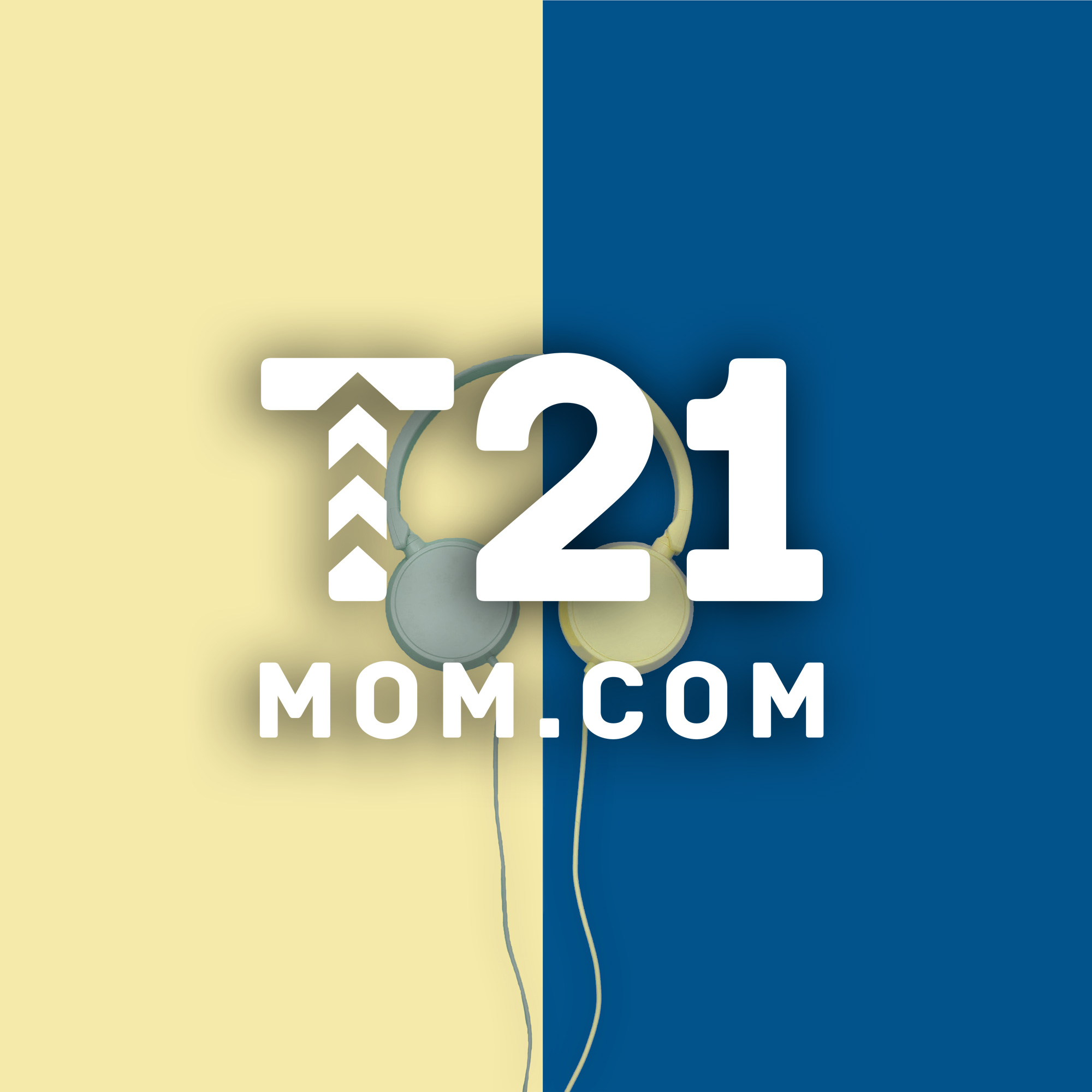
T21Mom-A Down Syndrome Podcast
T21Mom.com
The Collaborative IEP
Ashley Barlow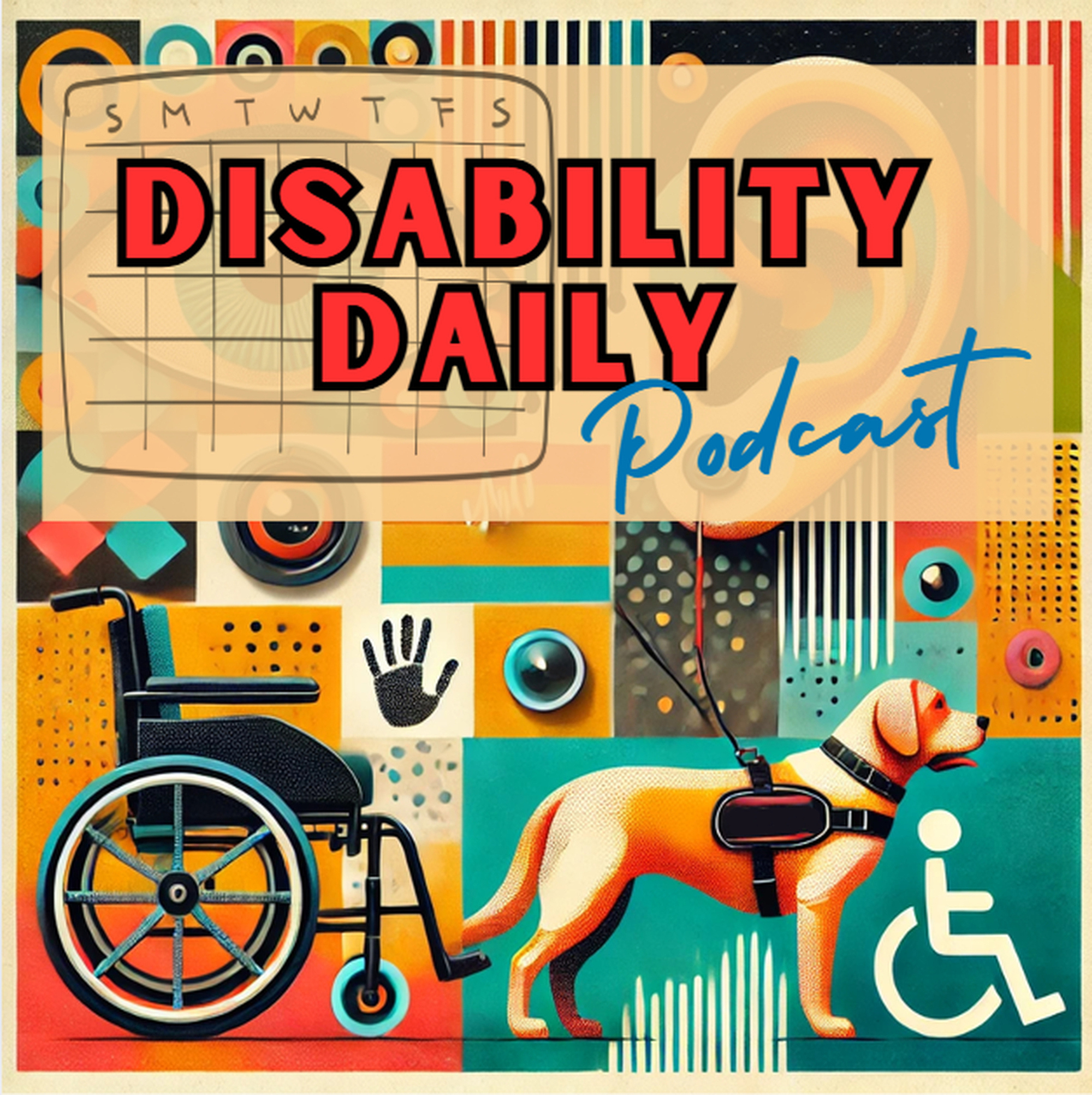
Disability Daily Podcast
Katie Healey, PhD, CPACC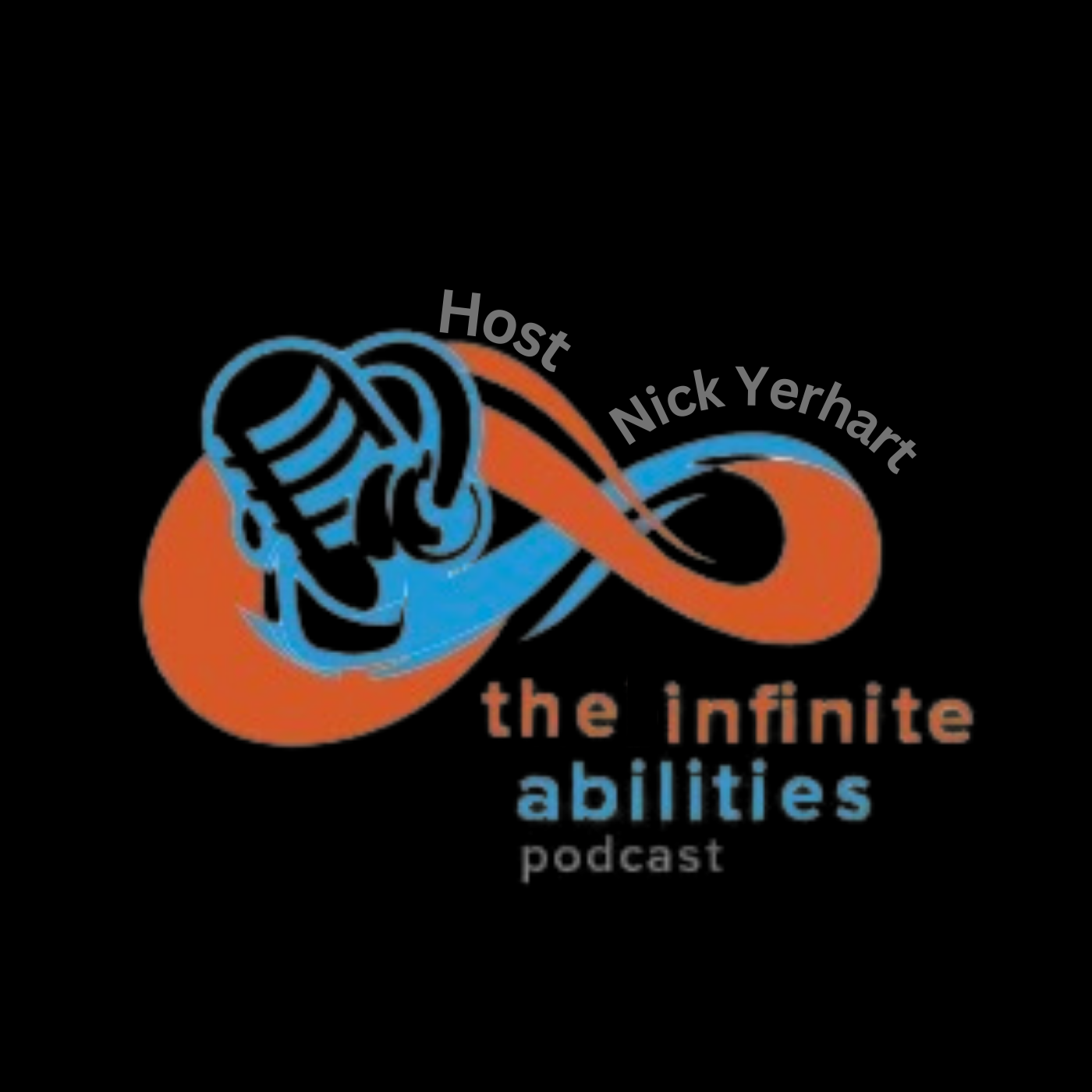
The Infinite Abilities Podcast
Nick Yerhart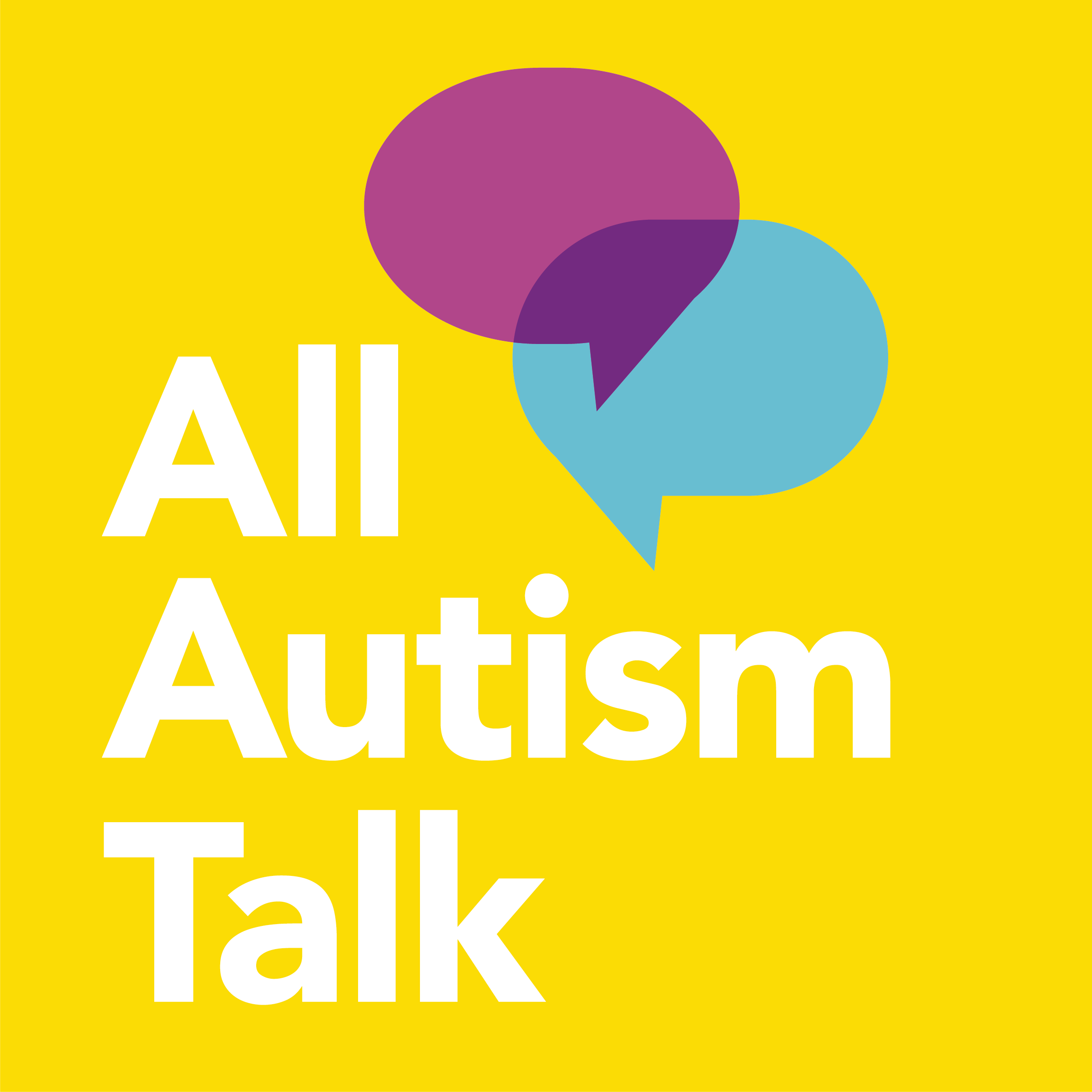
All Autism Talk
All Autism Talk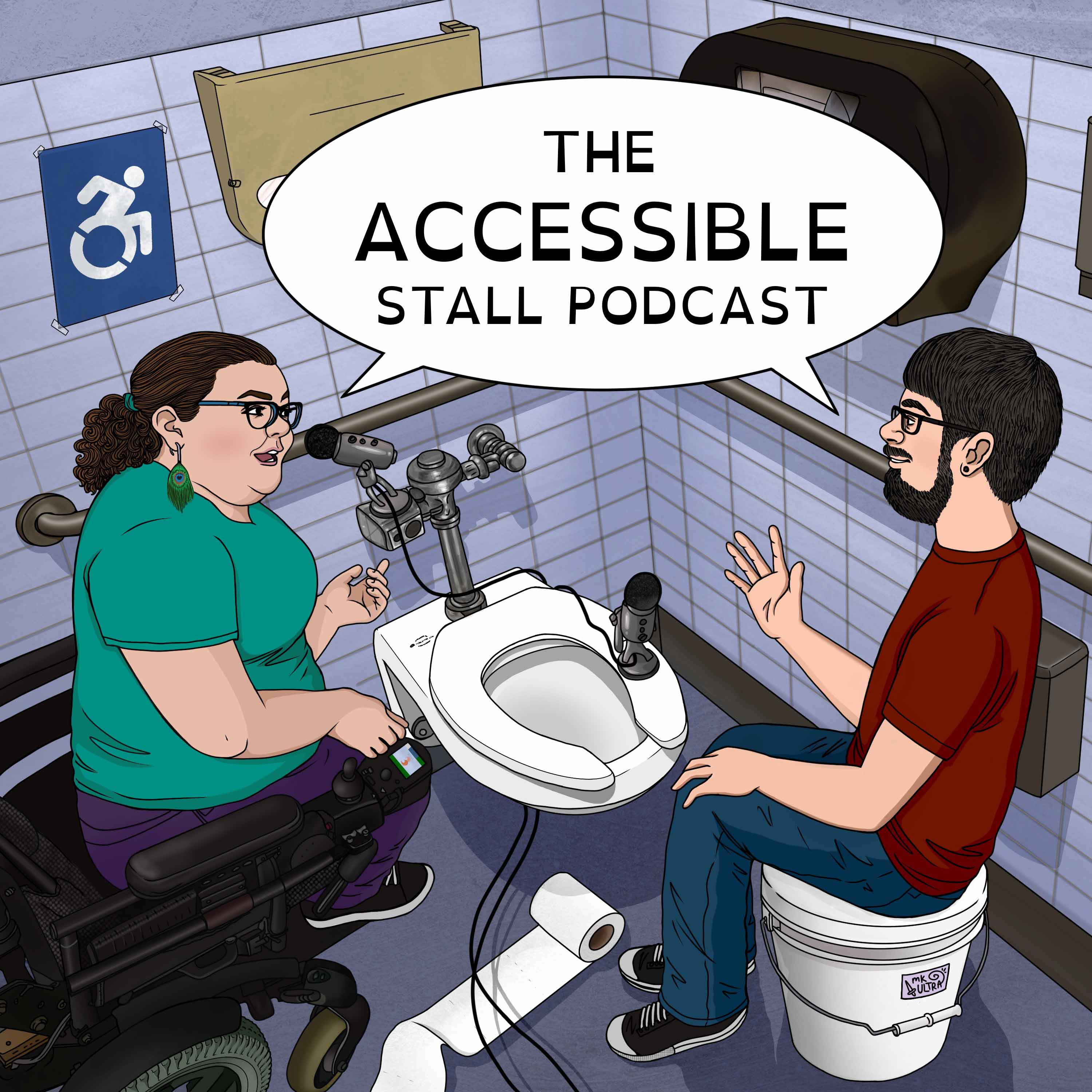
The Accessible Stall
Kyle Khachadurian and Emily Ladau
Disability Deep Dive
Disability Rights Florida
STAY Tuned: Supporting Transition-Age Youth with mental health conditions
STAY Tuned at Transitions to Adulthood Center for Research
Moms Talk Autism Podcast
Shannon Korza, Brittney Crabtree, Tash Dillmon, and Jean Mayer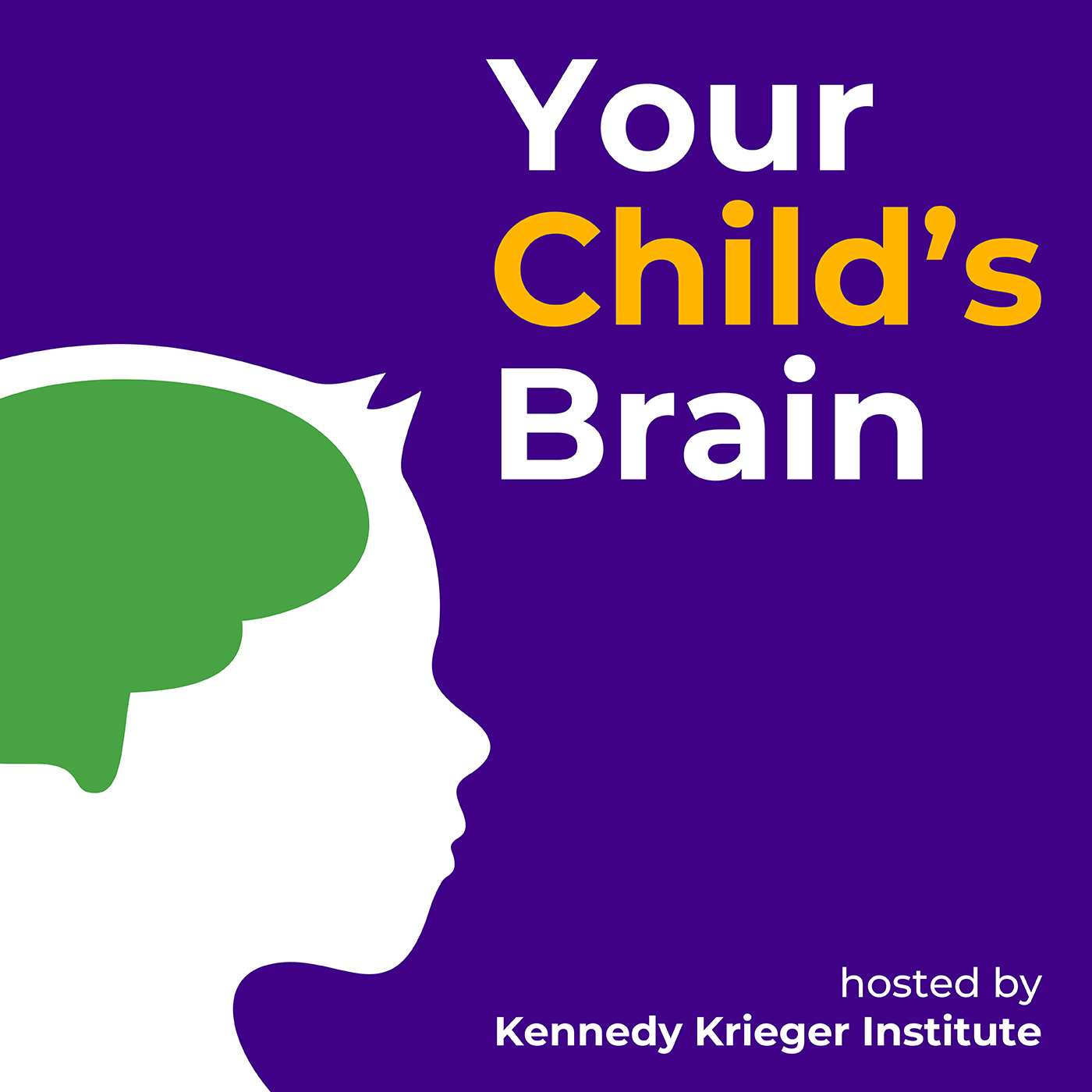
Your Child's Brain
WYPR Baltimore



